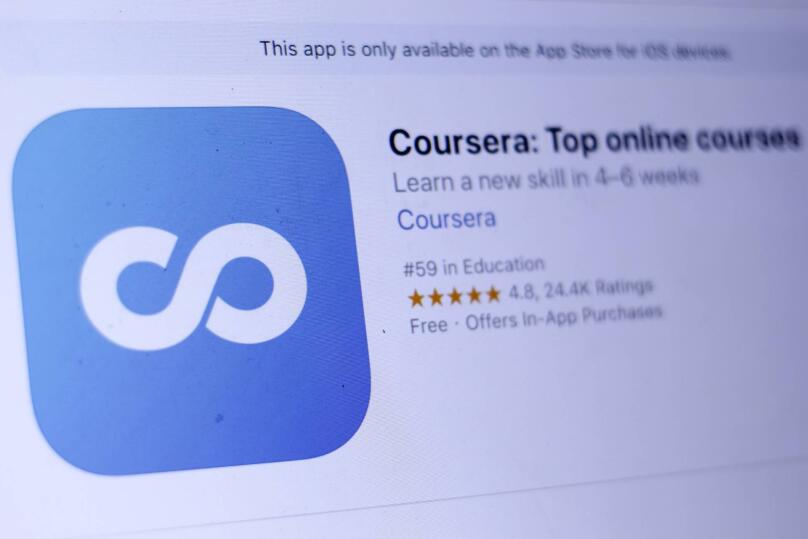8 reasons to study online
If you are interested in complex or obscure topics, your chances of finding relevant courses at an online university are much higher than at traditional universities or colleges.

We have grown accustomed to ordering food, clothing and electronics, meeting people and socializing, watching movies, buying and downloading books online, it comes naturally to us now. However, not everyone is used to studying online, and there are a lot of stereotypes surrounding online education. Some say the quality is too low, or that online students are lazy people who want to get a certificate without putting in the work. Sure, the quality varies between online schools, but you'd certainly be wrong to call online students lazy. Online learning offers many more advantages than disadvantages. Let's take a look at the most important ones.
You can study whatever you like

If you are interested in complex or obscure topics, your chances of finding relevant courses at an online university are much higher than at traditional universities or colleges.
For example, you might be passionate about neurobiology but hesitant to turn it into a career, if you just want to find out how the brain works. A quick Google search will show you dozens of online programs from the most prestigious universities in the world. And with the click of a button, you're in!
With traditional education, you are forced to make a choice, as any program requires consistent attendance at lectures and a commitment to spending several years learning a particular discipline. If you are not interested in committing to a topic, or you would like to try something out to see if you can make money from it, you can take several courses in parallel without wasting time taking one after the other.
You don't need to go anywhere

With online education, there are no more borders. In the past, people living in small towns had to travel to Moscow to get a good education, as there were no courses in programming i their hometown. And students living in Moscow had to spend a lot of time stuck in traffic. Today, you no longer have to leave your house to learn from the best of the best: all top universities, professional communities and major companies including Tinkoff Bank and Yandex now offer their own online programs.
It doesn't matter who you are

Some people start studying after the age of 40 and might be ashamed to sit in a classroom with younger people. Online education offers a solution to this problem, as you don't see the other students in your class and don't have to worry about your age. Moreover, there might be dozens of other older people intent on changing their lives in your class. With online courses, students can be 7 or 77 years old, with any social status or level of mobility, living in various regions, with different levels of education - and none of these things matter. The only things that count are the right motivation to learn and a good work ethic.
You can customize your course to your needs
You can set the pace that works for you, anything from a 2-day intensive to a year-long course. If you miss a class, you can watch a recorded version whenever you have the time - in the evening after work or on the weekend. If you don't get something the first time or the topic is more difficult than expected, you have the option to go through previous lessons again or instead skip the ones that you know already.
Huge selection of programs

Full-time courses and lectures always come with their limits: for example, a certain course with an interesting lecturer is only given once a year, or programs are dedicated to only one area, forcing students to travel to a different city to suit their diverse interests. Online schools offer a wide range of courses, from the basics of text editing to machine learning. Students hoping to start from scratch or switch to a different field will have a lot of options to choose from.
Privacy

Many people are uncomfortable in crowds, when they are forced to meet new people in an unfamiliar setting. Offline learning requires students to worry about their choice of clothing, it forces them to be friendly and sociable. Online learning is much more convenient - participants can control the amount of interaction, only talking to the teacher and avoiding contact with classmates if they want. It's easy to connect to a webinar or broadcast, and it doesn't matter what your wearing or how messy your desk is. You can combine your studies with other tasks - cleaning your house, sorting mail or doing your nails while you learn. Many people prefer to study in a familiar environment, wearing comfortable clothing.
Everything is changing
Jobs in the digital sector and business education both require the ability to quickly adjust to a changing environment, rapidly adopt new trends and learn to work with new instruments. It's much easier to adapt an online program to these changes. With online courses, you can get an education that matches the current paradigm in the industry and prepares you for the future.
Most importantly - online education changes you

Online education requires students to develop certain qualities:
- organization skills - the ability to set up your schedule so you don't miss classes, complete homework and practical tasks on time;
- determination and motivation - even when it gets tough, you can't leave things halfway done, so you need to motivate yourself to do things instead of 'forcing' yourself;
- concentration - you need to stay focused and off YouTube and conversations with your friends during your lessons.
If you want to achieve something, online learning can help you develop a much stronger character. You will gain confidence, learn to concentrate on important things, and find out what you are passionate about. During the course, you will learn to plan out your schedule, which can turn into a useful habit. You will broaden your horizons and find out more about the industry and yourself - this will help you in business, work and life. And new knowledge is never a waste of time!
Share this with your friends via:
Latest News

In the UK, £23 million has been allocated for the expansion of the EdTech Testbed program — pilots of educational technologies in schools and colleges.

In the US, Tuskegee University announced the launch of Tuskegee University Global Campus (TUGC) — a new online platform for distance learning.

A significant stage in the development of the alternative education system has begun in West Northamptonshire in the UK: the County Council is actively calling on parents, guardians, and trustees to participate in shaping the future of this key area.

Outwoods Primary School in Atherstone, Warwickshire, having experienced deep sadness after the loss of their famous cat, Silla, has found solace in a new pet – a Maine Coon named Aloysius O’Hara.

In modern universities, artificial intelligence, and in particular ChatGPT, is rapidly transforming from a controversial tool into a full-fledged student assistant.












 Spring skills audit: what to remove, strengthen, and “sow” in learning
Spring skills audit: what to remove, strengthen, and “sow” in learning
 9 Career Mistakes Young Professionals Make
9 Career Mistakes Young Professionals Make
 £23 million allocated for the expansion of EdTech Testbed in the UK
£23 million allocated for the expansion of EdTech Testbed in the UK
 Test: How Psychologically Mature Are You? Check Your Inner Foundation.
Test: How Psychologically Mature Are You? Check Your Inner Foundation.
 Test. Check Your Social Media Dependency Level!
Test. Check Your Social Media Dependency Level!
 Test: What Business is Right For You?
Test: What Business is Right For You?
